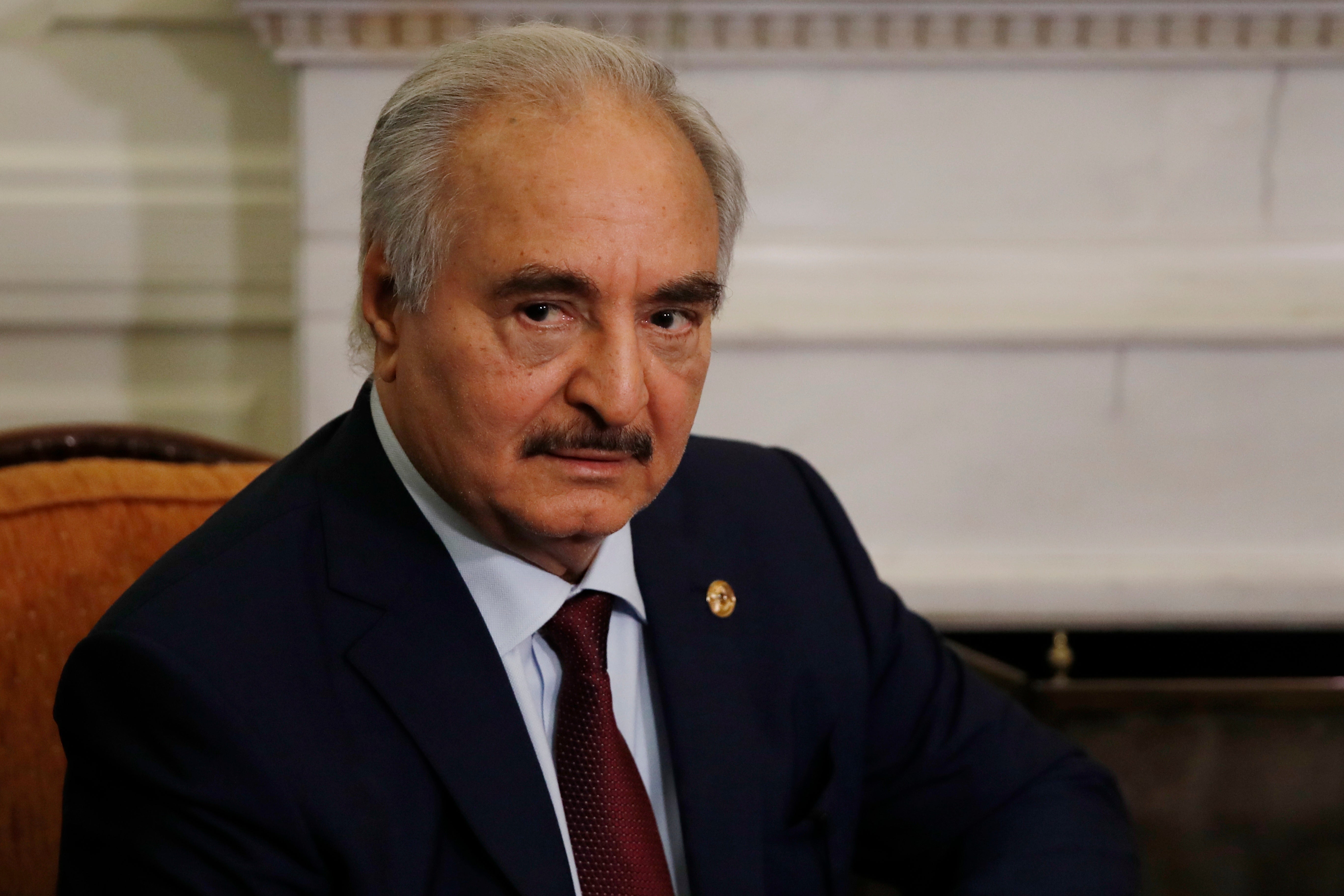UN: Libya rivals reach preliminary pact on prisoner exchange
The United Nations says talks between Libyan rivals in Egypt have concluded with preliminary agreements to exchange prisoners and open up air and land transit across the country’s divided territory

Your support helps us to tell the story
From reproductive rights to climate change to Big Tech, The Independent is on the ground when the story is developing. Whether it's investigating the financials of Elon Musk's pro-Trump PAC or producing our latest documentary, 'The A Word', which shines a light on the American women fighting for reproductive rights, we know how important it is to parse out the facts from the messaging.
At such a critical moment in US history, we need reporters on the ground. Your donation allows us to keep sending journalists to speak to both sides of the story.
The Independent is trusted by Americans across the entire political spectrum. And unlike many other quality news outlets, we choose not to lock Americans out of our reporting and analysis with paywalls. We believe quality journalism should be available to everyone, paid for by those who can afford it.
Your support makes all the difference.The United Nations says talks between Libyan rivals in Egypt have concluded with preliminary agreements to exchange prisoners and open up air and land transit across the country s divided territory
The face-to-face military talks, which started Monday in the Red Sea resort of Hurghada, came amid international pressure on both sides of the war and their foreign backers to avert an escalation.
The U.N. support mission in Libya said in a written statement that the two days of talks, conducted in “a spirit of responsibility, transparency and mutual trust," had resulted in progress on several of the lingering issues between the war's two parties.
It said that both sides agreed they should take steps to ensure the release of all prisoners taken amid military operations sometime next month. Another point was that both sides would expedite the opening of transit links across their respective territories.
The outcomes of the negotiations will be mainstreamed into U.N.-brokered military talks which should be held in the coming week, the U.N. mission said.
The two sides also agreed that the protection of country's oil and gas facilities, which are largely under the control of forces backing military commander Khalifa Hifter in the country's eastern region, should be a priority in the coming talks, in order for production and export to resume fully.
Oil-rich Libya was plunged into chaos when a NATO-backed uprising in 2011 toppled longtime dictator Moammar Gadhafi, who was later killed. The country has since split between rival east- and west-based administrations, each backed by armed groups and foreign governments.
Hifter’s forces launched an offensive in April 2019 to try and capture Tripoli, the seat of the U.N.-supported government in the west. But his campaign collapsed in June when the Tripoli-allied militias, with heavy Turkish support, gained the upper hand, driving his forces from the outskirts of the city and other western towns.
Hifter is supported by Egypt, the United Arab Emirates and Russia. Tripoli-allied militias have backing from Turkey, a bitter rival of Egypt and the UAE in a broader regional struggle, as well as from the wealthy Gulf state of Qatar.
Fighting has died down in recent months, but both sides were preparing for a possible battle over Sirte, the gateway to Libya’s major oil fields and export terminals, controlled by Hifter.